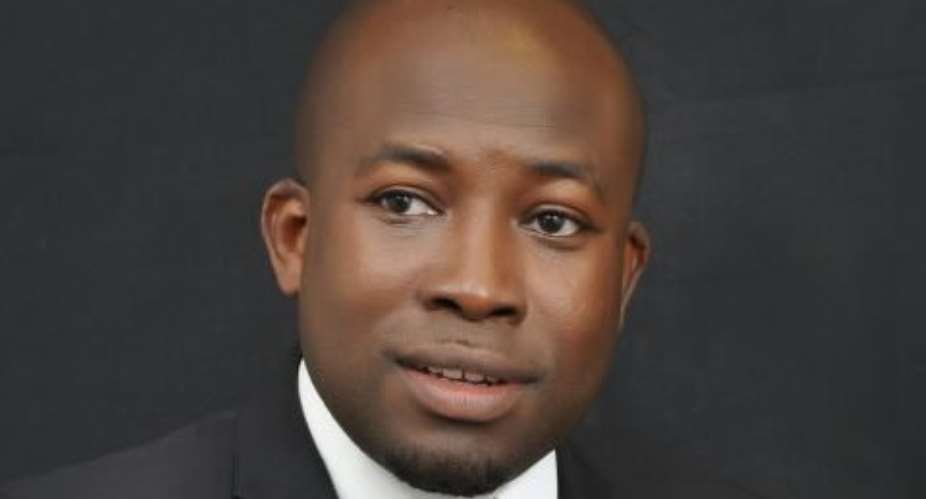Government should not succumb to mounting pressure by sections of the public for fuel prices to be reduced, Senyo Hossi, lobbyist for Bulk Oil Distribution Companies (BDCs) has said.
The over-recoveries being realised in the wake of falling crude oil prices, he said, could help government clear a debt backlog of some GHȻl.5 billion it owes BDCs.
"The 2015 budget has only GHȻ50 million for petroleum subsidies and we have a GHȻ1.5 billion problem. How is government going to pay for it?" he asked.
"It is obvious that this over-recovery is a major mechanism for paying. God has been good to the economy in that prices have been falling and consumers are screaming. But when prices were rising, the TUC and others were rather fighting for government to subsidise. So if prices are going down I think it is only fair that we balance it out and make sure we have a mechanism to clear the backlog."
Senyo Hossi warned that "if we don't have a clear mechanism - which the banks now see as the over-recovery - for paying the debt, we will dampen funding confidence again and we will go back to June. This is not politics. So the earlier everybody stops the politics about petrol the better".
Oil prices have gone down by half since June due mainly to slowing economic growth in developing nations, particularly China. On Monday, the price of Brent Crude was just above US$61 while WTI Crude Oil was US$56.52.
Saudi Arabia, a major producer and key member of the largest oil producing block, OPEC, has hinted that the falling prices are temporary; as such, Chief Executive Officer of United Bank for Africa (UBA) Ghana Abiola Bawuah argues that Ghana should not be in a rush to reduce prices.
"The world market prices will not fall forever; the price will go up again, so it is better we leave it as it is so it becomes a cushion in case the world market prices rise again," she told the B&FT recently.
"When prices were going up on the world market we were not buying it at a higher price at the pumps due to the subsidies from the government. So if there is a fall, let's pay the backlog."
The National Petroleum Authority, which regulates the downstream petroleum sector, at its bi-weekly meeting last week maintained the price of fuel at the pumps for at least the next two weeks - a decision that has received wide public criticism.
Petrol continues to sell at GHȻ3.39 per litre; diesel at GHȻ3.30; kerosene at GHȻ3.25 and Liquefied Petroleum Gas (LPG) at GHȻ2.94 per kilogramme.
The NPA said it decided against reducing petroleum prices because it wants to take advantage of the price drop to save money to defray the debt owed the BDCs, and could possibly reduce it next year.
"Somebody was talking to me today and was referring to London, where prices have been reduced by 2percent. But in London they do not regulate prices. So government does not owe anybody. If you have a regulated market and by virtue of that you have incurred a lot of debt, why do you want to compare yourself to somebody who has not incurred any debt?” Senyo Hossi asked.
"It would, have been much easier if the tax was there. If governments: want to intervene in prices they should moderate their taxes. They should not, force BDCs to fund the system and it is not sustainable." .





 NDC demands complete overhaul of security protocols at EC to safeguard electoral...
NDC demands complete overhaul of security protocols at EC to safeguard electoral...
 Ghana reaches interim deal with international bondholders — Finance Ministry
Ghana reaches interim deal with international bondholders — Finance Ministry
 Mahama to form joint army-police anti-robbery squads to safeguard 24-hour econom...
Mahama to form joint army-police anti-robbery squads to safeguard 24-hour econom...
 Another man jailed eight months over shrinking penis
Another man jailed eight months over shrinking penis
 Ghana to adjust external bond deal to meet IMF debt sustainability goals — Finan...
Ghana to adjust external bond deal to meet IMF debt sustainability goals — Finan...
 IMF negotiations: We've not failed to reach an agreement with bondholders; we’ve...
IMF negotiations: We've not failed to reach an agreement with bondholders; we’ve...
 EC begins recruitment of temporary electoral officials, closes on April 29
EC begins recruitment of temporary electoral officials, closes on April 29
 NPP lost the 2024 elections in 2022 due to inflation and cedi depreciation — Mar...
NPP lost the 2024 elections in 2022 due to inflation and cedi depreciation — Mar...
 Your good heart towards Ghana has changed; don’t behave like Saul - Owusu Bempah...
Your good heart towards Ghana has changed; don’t behave like Saul - Owusu Bempah...
 Wa West: NDC organizes symposium for Vieri Ward Women
Wa West: NDC organizes symposium for Vieri Ward Women
